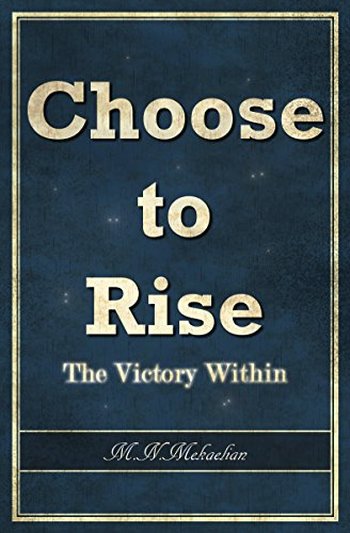 “Choose to Rise” is a lyrical account of the Armenian Genocide. I know what you’re thinking: how can such a horrendous (but historically important) part of our history be LYRICAL? Allow me to explain. “Choose to Rise” is a historical fiction of the events that happened in the years leading up to the Armenian Genocide, during, and very briefly the aftermath. The vast majority of this book occurs over the span of a few years (1913-1915) and is told in first person through the main character Armen, who is finally telling his grandchildren what he and his family endured. Despite the heavy subject matter, the author endeavors to make his readers really feel what his characters (and countless real people) encountered. He aims to bring that era to life by painting us a picture through prose. Mekaelian’s descriptions throughout the book are just lovely, which is why this book has a lyrical quality to it. While I thought the author’s writing was beautiful, it didn’t always work well with the story he was aiming to tell, however. First let me start by saying that I went into this book not knowing a great deal of the events surrounding WWI that led up to what became known as the Armenian Genocide. That’s actually why I wanted to read this book. As I read, I was getting frustrated because the author doesn’t come out and tell you “this is why all these awful things happened”. The more frustrated I got with Armen for not imparting that tidbit with his grandchildren as he recounts his childhood, the more I started to think about it. Why wasn’t Armen/the author explaining this? And then it hit me: because the Armenian’s didn’t know. They had no good answers. There was no “excuse” for the pain and suffering their people endured. They could not find a reason, nor an explanation. Like the Holocaust, these were the acts of a government who wanted to push a minority group out of “their” country and used them as a scapegoat for anything and everything they could. So, bravo to Mekaelian for bringing about that realization in a very appropriate way and inspiring me to continue learning more about the history surrounding the events in his book.
Also, and this should go without saying, given the subject matter of this book, this isn’t a book for everyone. There is a lot of suffering in this book, as one should expect with a historical fiction about genocide. While there is nothing overly graphic in any of the descriptions, Mekaelian doesn’t hide the violence, either. Which is good! Because I think it would have undermined Armen’s story if the author had watered it down, but that does mean this book is probably better suited for a mature reader. One who will appreciate the history behind it, and acknowledge that even though this is a work of fiction, the things the author describes wouldn’t have been fiction for the people living in that time. Like I mentioned, the author writes beautifully. He really strives to paint a picture with his words. At times, this works magnificently and I loved the sections where Armen is explaining the terror he felt when the Turks came to visit his family’s farm. However, there are multiple sections where the author gets swept up in this prose and it just doesn’t work. The phrasing is off, the adverbs used don’t fit, and this makes the scene confusing and puts it at odds with the things the author is trying to communicate. For example—and I won’t give more because that’s not the point of this review—there is a scene where something devastating happens. Armen and his brother are investigating the house before the perpetrators return, and the author says the brothers “quickly strolled through the house”. One does not quickly stroll. But again, a lot of that is the result of the author trying really hard to make his readers feel things, and when it works, it’s great, but when it doesn’t work … it really doesn’t. Also, the book is told through Armen’s eyes, we get only his perspective on things. Or we should. This gets muddled a bit when the author has to show us things that are going on with Armen’s brother and his girlfriend. Things that Armen would have no way of knowing. It’s small, but as this book is rather long, I felt those instances where the POV wasn’t consistent, could have been removed and nothing would have been lost story wise. First person is a hard POV to work in, and for the most part, Mekaelian does a decent job with it. But I wonder with, given the prose style the author uses and his desire to show us the relationship between his brother and girlfriend, if a third person POV would have been better. This is a hard book to rate. It’s an important story, the Armenian Genocide doesn’t get nearly the attention it should. This novel, however, is more of a personal history then a wide sweeping historical fiction. But it’s a good introduction to get readers curious to read more of what was going on during that time. But given the issues that popped up because of the lyrical writing and the confusing POV at times, I’m giving this book 3 stars, but still encourage you to read it as it is such an important story. Thank you to the author for providing me a copy for review!
0 Comments
Leave a Reply. |
Click the book images to see them on Amazon!
Categories
All
|






 RSS Feed
RSS Feed



















